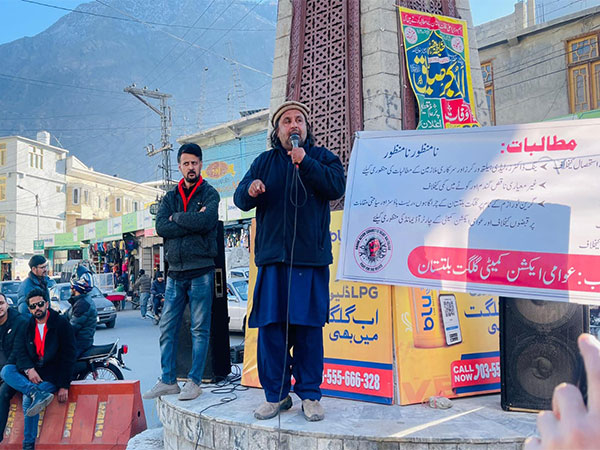Mass Protest in Gilgit Demands Action on Mounting Local Issues
The Awami Action Committee organized a large protest in Gilgit, addressing major concerns like high electricity bills, lack of subsidies, illegal land use, and educational expenses. The protest highlighted the growing discontent among residents, urging government intervention to improve living conditions in Pakistan-occupied Gilgit Baltistan.

- Country:
- PoGB
In Gilgit, the Awami Action Committee (AAC) staged a significant protest at Itehad Chowk, voicing discontent over numerous challenges confronting the people of Pakistan-occupied Gilgit Baltistan, according to Pamir Times. The demonstration drew substantial local participation, spotlighting urgent issues, including rising electricity bills and frequent power outages, which continue to exacerbate community hardships.
Protesters vociferously criticized authorities for their failure to tackle the energy crisis, demanding swift actions to enhance power supply and lower electricity expenses, as reported by Pamir Times. Another critical issue raised was the economic strain due to the withdrawal of subsidies on essential goods, especially wheat. The AAC pressed for reinstating these subsidies to ease financial burdens, as per the report.
The protest also shed light on unauthorized land encroachments and resource exploitation, urging the government to compensate those displaced by large projects like the Diamer Bhasha Dam adequately. Protesters insisted that local communities receive fair compensation for land and livelihood losses, according to Pamir Times. Additionally, the AAC emphasized rationalizing educational fees to make higher learning accessible and criticized trade restrictions at the Sost port, demanding better commerce opportunities, Pamir Times reported.
The AAC concluded the rally by calling on the government to act decisively on these critical issues to uplift PoGB residents' lives. The Gilgit protest, spearheaded by the Committee, highlighted an urgent call for government intervention to tackle energy woes, economic strains, and trade limitations, echoing the communities' mounting frustration and desire for a better living standard, as conveyed by ANI.
(With inputs from agencies.)










